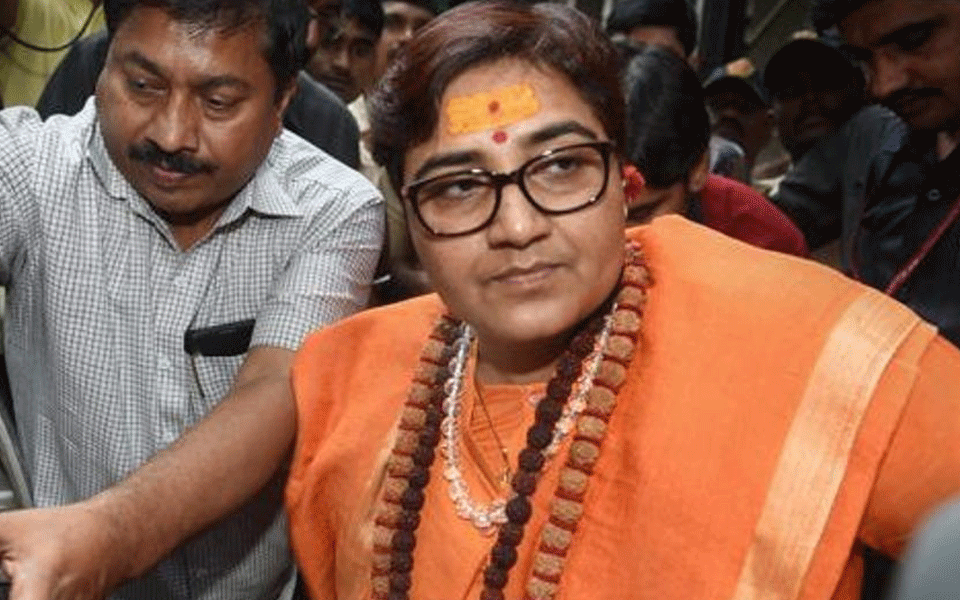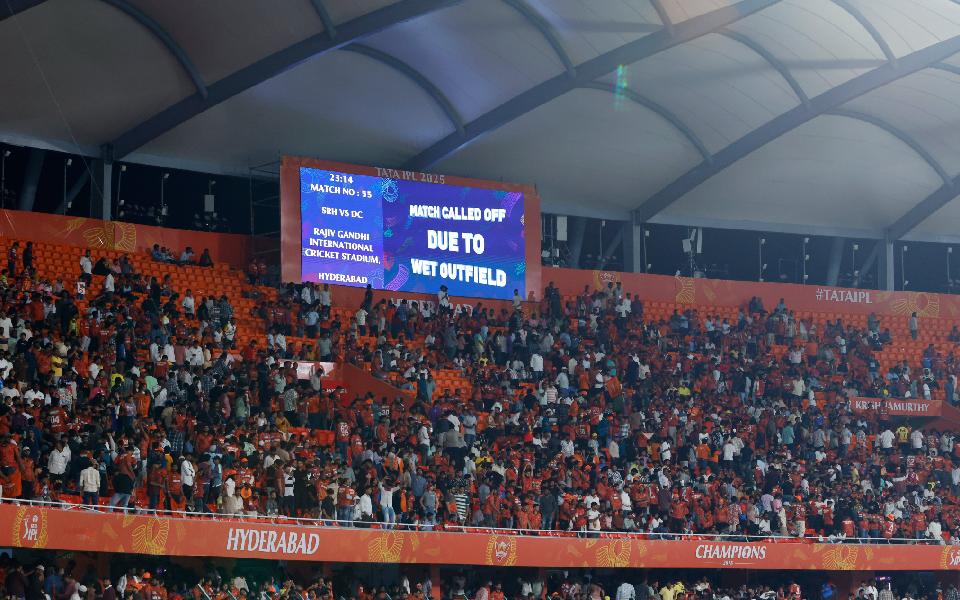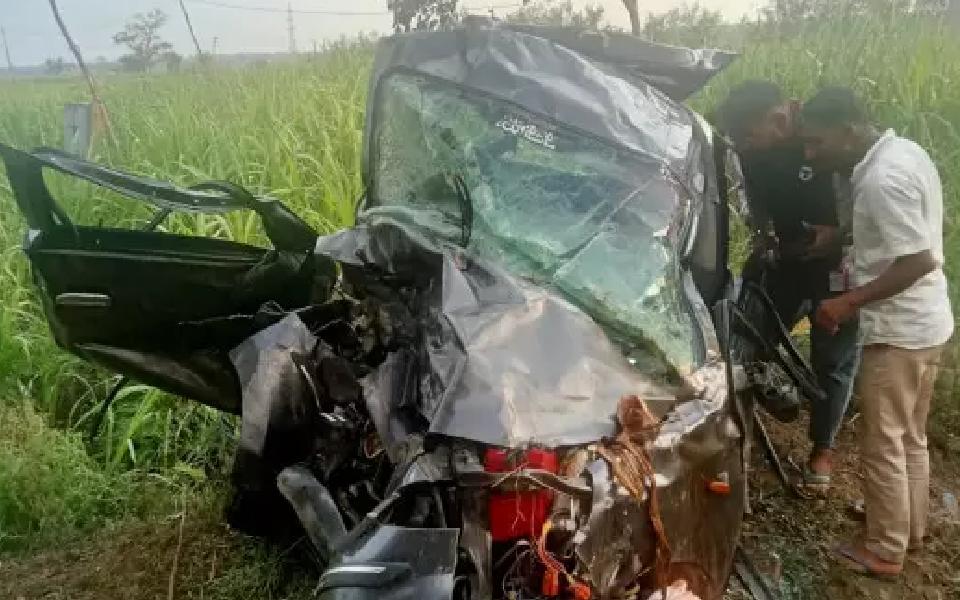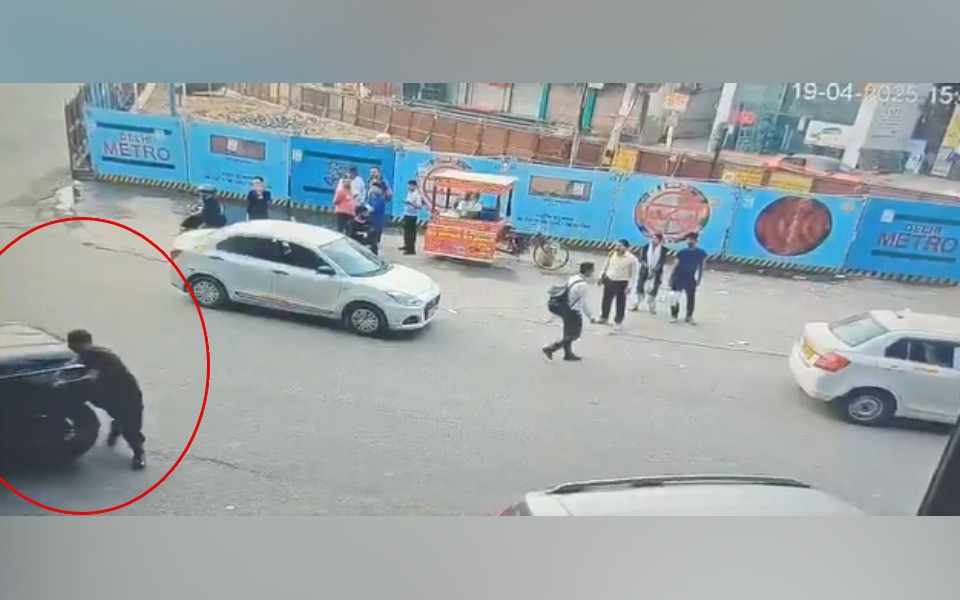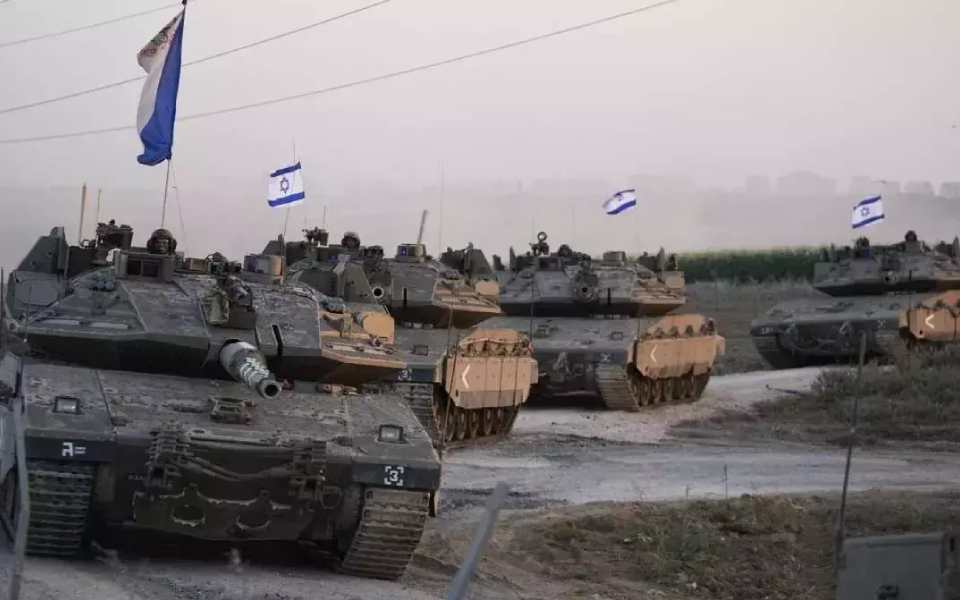Bhopal, May 21: In a politically-significant move, the Madhya Pradesh government is contemplating to reopen a 12-year-old murder case of an RSS activist in which controversial BJP leader Pragya Singh Thakur was acquitted due to lack of evidence.
RSS 'pracharak' Sunil Joshi was shot dead in Dewas district on December 29, 2007. Thakur, an accused in the 2008 Malegaon blasts, was one of the eight people who were acquitted by a lower court in 2017 in the Joshi murder case due to lack of evidence.
State Law Minister P C Sharma said a legal opinion is being sought for reopening the case as the bureaucrats had "faulted" by not appealing against the February 1, 2017, order of the court.
The move is seen by the Bharatiya Janata Party (BJP) as a "politics of revenge" by the Congress-led government in the state. "It looks like the MP government is going to take this decision because Pragya Thakur contested the election as BJP candidate against Congress' Digvijaya Singh," party spokesperson Rajnish Agarwal said.
Thakur is contesting the Lok Sabha election from Bhopal on a BJP ticket against the Congress' two-time chief minister, Digvijaya Singh. The exit polls indicate of a victory for Thakur.
Sharma said the state government would appeal in a higher court to reopen the Joshi murder case, adding that the Dewas collector had been asked to submit a report.
"We will seek a legal opinion on that report and then take a decision about moving a higher court," Sharma said, claiming that the then district collector took a decision about not filing a review without asking the law department for legal opinion.
"The district collector should have sent the report to the law department instead of deciding that there was no need to move a higher court," the minister said.
The NIA had been moving from pillar to post for getting the Joshi murder case transferred to it from the Madhya Pradesh police, which was then headed by Chief Minister Shivraj Singh Chouhan. The then BJP-led state government was initially reluctant in handing over the case, but finally had to give in.
Joshi, who had been chargesheeted by the NIA in connection with the Samjhauta Express blast in 2007, was considered an important link to alleged acts of right-wing terror. He was shot dead when he was walking back to his hideout in Chuna Khadan locality in Dewas town.
The state police had also filed a charge sheet in the Joshi murder case against Thakur, against whom charges had been framed by a special court in the Malegaon blasts case that left nine people dead. She is presently out on bail.
After the BJP-led NDA came to power at the Centre in 2014, the NIA shifted the Joshi murder case back to the Madhya Pradesh police, saying it found no terror angle in the case. Joshi has been named as an accused in the NIA charge sheet on the 2007 Samjhuta train blasts that left over 60 people dead.
Under the previous UPA dispensation, the NIA had filed several applications before courts in Madhya Pradesh, seeking directions to the state police to hand over the investigation to it.
The MP police, after having closed the Joshi murder case earlier, reopened it and filed a charge sheet in Dewas, alleging Thakur and four others had murdered him as the accused feared he might expose the entire conspiracy from Samjhauta to Ajmer blasts.
The NIA, which had taken over the case in 2013, filed a supplementary charge sheet in August 2015, over a year after the Modi government took office. It said since no "scheduled offence" had been found during the probe, the designated NIA court might transfer the matter to any other court for taking cognizance of the offence.
The anti-terror agency ruled out any larger conspiracy, reducing the case to one of simple murder by contending that "licentious advances" made by Joshi to Thakur had angered her accomplices who killed him.
The court had in February 2017 acquitted Thakur and seven others, observing that the state police and the NIA conducted the probe with "prejudice" and produced "weak and self-contradictory evidence".
"The contradictory evidences by police and NIA in the case raised serious doubts in the whole case," Rajiv Madhusudan Apte, the additional district and sessions judge, said while acquitting Thakur, Harshad Solanki, Vasudev Parmar, Patel, Anandraj Kataria, Lokesh Sharma, Rajendra Choudhary and Jitendra Sharma.
Let the Truth be known. If you read VB and like VB, please be a VB Supporter and Help us deliver the Truth to one and all.
Hyderabad, May 5 (PTI): Sunrisers Hyderabad were eliminated from the play-offs race after their Indian Premier League fixture against Delhi Capitals was called off due to heavy rain following the first innings here on Monday.
Pat Cummins-led SRH pace attack ran through the DC batting line-up to limit the visitors to 133/7 before rain dashed the slim hopes of the home team. Both teams shared a point each for the abandoned game.
With 13 points from 11 games, DC remain in contention for a top-four spot.
After reaching the final last year, it was a season to forget for SRH who could not replicate their ballistic run of 2024 with the bat. Having collected only seven points from 11 matches, SRH will now be playing for pride.
Chennai Super Kings and Rajasthan Royals were already eliminated from the competition.
Before rain lashed the Rajiv Gandhi Stadium, the hosts put up a clinical effort with the ball and were on course for only their fourth win of the season until rain arrived, creating large puddles of water on the outfield. The match officials decided to call off the game at 11.10 pm local time.
The shot selection of Delhi Capitals' batters contributed to their downfall after being put in to bat.
They were left reeling at 29 for five in 7.1 overs with captain Cummins causing the maximum damage.
Cummins had Karun Nair caught behind on the very first ball of the match with a good length ball around the off-stump. It was a rather loose shot from the DC batter first up.
Faf du Plessis departed in Cummins' following over, a failed attempt to put the relentless Australian away for a boundary. Not getting any loose ball from Cummins, the South Africa went for a pull on the charge only to be caught by the wicket-keeper.
Cummins' third victim was Abhishek Porel who was caught after mistiming a flick.
Harshal Patel and Jaydev Unadkat then got into the act by dismissing Axar Patel and K L Rahul respectively. The in-form Rahul went for a drive on the up but ended up edging it to Ishan Kishan behind the stumps.
It was one way traffic until Tristian Stubbs (41 not out off 36) and impact player Ashutosh Sharma (41 off 26) combined to take DC to a respectable total. They shared a 66-run stand off 45 balls.
Sharma was able to break the shackles by depositing leg-spinner Zeeshan Ansari for a couple of sixes over long-on in the 15th over.
Stubbs did not look as comfortable as Sharma in the middle but managed to provide much needed support to the latter. The South African could find only four boundaries with the last one coming off the final ball of the innings.
🚨 News 🚨
— IndianPremierLeague (@IPL) May 5, 2025
Match 55 between @SunRisers and @DelhiCapitals has been called off due to wet outfield.
Both teams share a point each.
Scorecard ▶ https://t.co/1MkIwk4VNE
#TATAIPL | #SRHvDC pic.twitter.com/VnVZWjsjGJ

